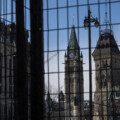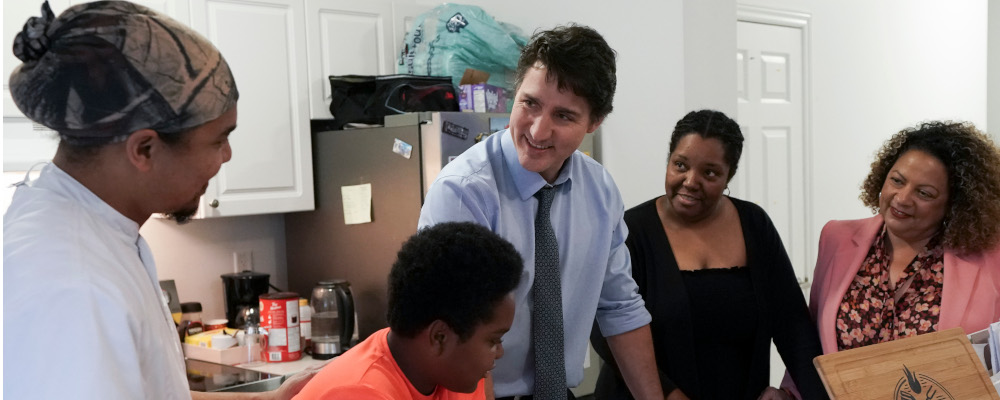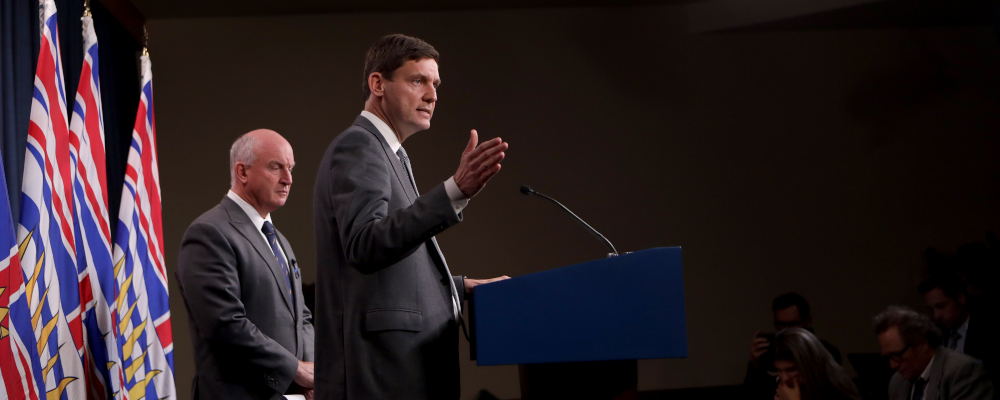This week at Hub Forum, readers discussed the potential consequences of a second Trump term, Supreme Court Justice Malcolm Rowe’s comments on judicial overreach, whether journalism schools are failing a generation of students, Canada’s big bet on the U.S. as a trade partner, and Canada’s housing crisis.
The goal of Hub Forum is to bring the impressive knowledge and experience of The Hub community to the fore and to foster open dialogue and the competition of differing ideas in a respectful and productive manner. Here are some of the most interesting comments from this past week.
Sign up for our daily Hub Forum email newsletter today.

The seismic consequences of a second Trump term
Monday, February 5, 2024
“Some may try to use the ongoing political drama south of the border as a distraction from their own performance. We must not let them. Rather than all this fretting about what may or may not occur in Washington, far better that we continue to remain focused on what’s happening in Ottawa.”
— RJKWells
“American democracy, such as it is, is certainly at risk, which would likely be very bad for Canada.”
— Paul Attics
“So, what about NATO and global peace and security?
The USA has always been the keystone of NATO. And beyond its NATO leadership has filled, for good and bad, a stabilizing role as the world’s de facto police force. It is worth noting that many have complained about the USA’s ‘imperialism’ while voting for politicians who don’t adequately fund their own national security apparatus or take a proactive role in foreign affairs, preferring low taxes and extensive social programs.
The USA leaving NATO, or stepping back from its historical role in global relations, would be highly destabilizing. As such the claim of Mr Granatstein’s essay is correct. This would be detrimental to the USA as well, but by then it may be too late. You don’t create a stable geopolitical environment overnight. Bad actors are kept in check due to a consistent approach and a credible threat. A future POTUS couldn’t simply hold a news conference declaring that ‘The USA is back!’ and expect everyone to go back to their corners. The consequences of a second Trump term would indeed be seismic.
But the real question is ‘Why do we need the USA to protect us?’ In the aftermath of WWII, the USA was needed to underwrite NATO as most European countries were broke (financially) and largely broken (economically). But it has been almost 80 years. The end of the essay touches on this. Is the problem really the possibility of a second Trump presidency? Or is the problem that too many countries—Canada certainly included—have happily pursued their own best interests while providing largely token support to international peace and security? The last paragraph of the essay points to this but does not really drive the issue home. This should be a learning moment.”
— Gord Edwards

Supreme Court judge warns about judicial overreach
Tuesday, February 6, 2024
“The judiciary should not be in the business doing anything more than interpreting the law as written IMO, not expanding the meaning and/or scope based on the context of the present moment and/or desires of highly motivated specific constituencies, even if the outcome might be deemed fairer, or even, more just.
Even judges are human beings, and as such, should be as non-political as possible, generally, as well as un-invested in outcomes other than a straight interpretation of the laws.”
— Paul Attics
Journalism schools are failing a generation of students
Wednesday, February 7, 2024
“A fine pulling back of the veil that shows that—if anything—Paikin pulled his punches. Some hard conversations are going to be needed if journalism is going to save itself from the neojournalists who refuse to serve their readers the way readers want and expect to be served. This is a devastating quote about staffers unwilling to abandon their assumptions. Good Lord. As API and others preached for a century ‘Assumptions are the mother of all screw-ups.’”
— Peter Menzies
“The job of educating journalists should be to help them probe those biases within themselves and within the people involved in the stories they cover in an effort to present as balanced a picture as possible. They should be taught methods not beliefs.”
— Stephen McClellan
Is Canada betting too much on the U.S.?
Thursday, February 8, 2024
“Our trade with the U.S. is much like being a small business contracting to one large company. It is convenient, but can be disastrous when that company has a change of management or marketing problems.”
— Kim Morton
“Our industries need to be competitive with the world. Tariff elimination gets rid of unproductive industries that are unable to adapt and lowers costs for the competitive. Focus on consumers, not producers.”
— Steve

You shouldn’t have to have rich parents to own a home
Friday, February 9, 2024
“This is an international problem and Canada isn’t the only country suffering from high housing prices. It’s true that Canada has two cities in the top 10 least affordable cities in the world. Expensive real estate is hardly a new phenomenon though and it is not strictly a Canadian issue. And it’s a complex issue that spans all levels of government, but most of the issue is at the municipal level.”
— Michael F
“First the rental issue. Unless the land price is taken out of the rental equation the rent will rise with home prices. Find crown land somewhere in the proximity of larger centres and develop rental-only housing. Any government land should never be sold to developers. (Remember Toronto Green Belt fiasco). Developers can build but not own the land. All the Vancouver folks have done via their zoning is add 40 percent to the price of land for every single-family home that is now on it. And in that area land is twice the value of the physical house on it!
Parents in mortgage-free or virtually mortgage-free homes should assist children with money to purchase a first home. If nothing else they should provide the $8,000 as a donation to the FHSA for as long as possible. Encourage the children to relocate to lower-price housing areas by having them look at work opportunities in those locations. Mobility should no longer be an issue.
The list of government programs to facilitate home ownership in the last few decades has always resulted in land prices increasing. Giving massive subsidies to corporations to build a plant or factory increases the price of housing in that location. The are many other examples.”
— Harry Boessenkool
“A society that now requires a large wealth transfer in order to buy a home is well into an accelerating standard-of-living decline.”
— Paul Attics
Recommended for You

The Weekly Wrap: It’s time to cut through Chesterton’s Fence and implement sweeping reform in Canada

Has the Left lost its masculine energy?

The Week in Polling: Young Canadians delay milestones due to high costs, Liberals lose the youth vote, and most Canadians fear a Trump-Vance White House

Ginny Roth: J.D. Vance, Pierre Poilievre, and how they slice their economic pie









